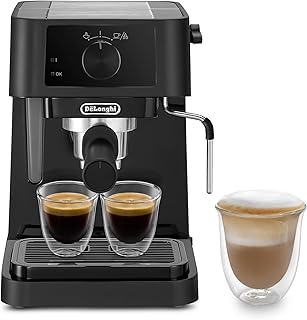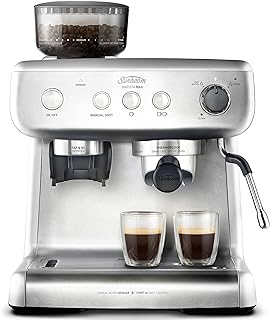Australian appliance giant Breville Group, known as Sage in Europe, has reported a record performance, achieving $1.53 billion in revenues this year, marking a 3.5% growth. This feat, driven by double-digit growth in its coffee machine segment, signifies a remarkable recovery after disappointing first-half sales earlier this year.
Over the past five years, Breville has more than doubled its sales, with particularly strong performance in regions like the Americas, Australia, New Zealand, and South Korea. The company’s success can be attributed to its focus on the specialty coffee market, a niche segment within the broader coffee consumption landscape.
Since 2019, Breville has pursued an aggressive distribution strategy, expanding its international reach through acquisitions like ChefSteps and LELIT. The company’s emphasis on premium coffee-making equipment has resonated well with consumers seeking café-quality brews at home, driving its remarkable growth in recent years.
The rise of Breville’s coffee machine sales is part of a broader trend in the coffee industry, where home coffee consumption has remained steady while out-of-home consumption has declined. The COVID-19 pandemic played a significant role in reshaping consumer habits, pushing individuals to recreate café experiences in their homes.
Factors such as economic uncertainties, rising inflation, and a desire for quality and control have fueled the trend of investing in high-end coffee machines. The emergence of the “prosumer” market, comprising coffee enthusiasts willing to invest in top-tier equipment, has further propelled the demand for premium coffee appliances.
Breville’s success underscores a shift in consumer behavior post-pandemic, where at-home consumption has become a preferred choice rather than just a convenience. Consumers are increasingly willing to invest in high-quality, durable goods despite economic uncertainties, reflecting a desire for luxury and quality experiences at home.
The success of Breville and its competitors like De’Longhi and Nespresso in the premium coffee appliance segment signals a growing threat to traditional coffee shops. The demand for at-home coffee machines has led to a decline in foot traffic for coffee chains and independent cafés, prompting these establishments to adapt by catering to the home barista market.
As consumer preferences evolve, the demand for innovation in coffee-making technology is expected to intensify. Brands will likely focus on introducing new features and technologies to meet the evolving tastes of modern coffee enthusiasts, driving further competition and consolidation in the coffee machine market.
In conclusion, Breville’s record sales serve as a bellwether for a broader transformation in the coffee industry, where both the coffee machine sector and the café industry will need to adapt to changing consumer preferences and behaviors. Whether through technological advancements or market consolidation, the coffee industry is poised for continued evolution in the coming years.
📰 Related Articles
- Lamborghini Targets Record Sales in Australia Amid Rising Demand
- Whole Bean Coffee Sales Surpass Ground in Germany
- Wall Street Surges to Record Highs Amid Trade Optimism
- Wall Street Hits Record Highs Amid Positive Market Sentiment
- Vanguard Australia Sees Record Inflows Amid Market Volatility






